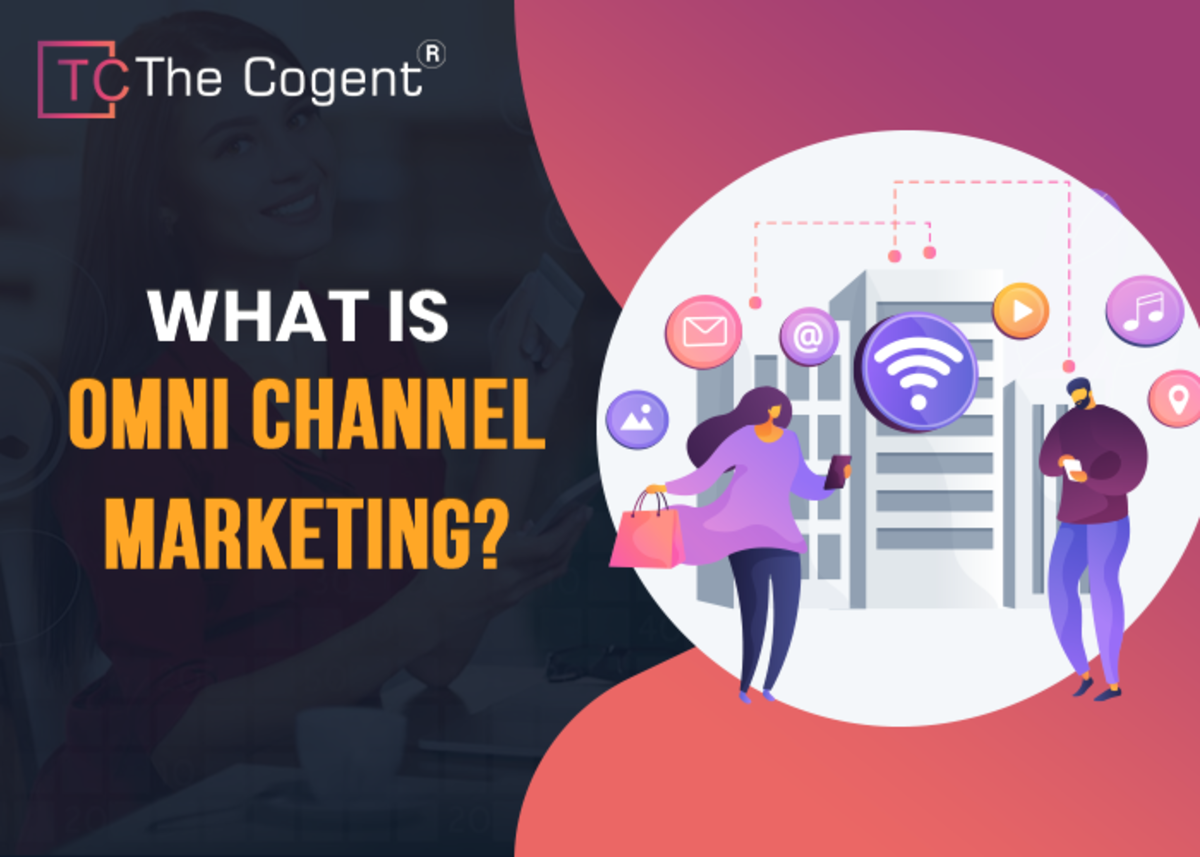In today’s fast-paced and interconnected world, businesses face the challenge of engaging customers across multiple platforms and touchpoints. Omnichannel Marketing, a strategy that seamlessly integrates various marketing channels, has emerged as a transformative approach to overcome this challenge. Omnichannel marketing revolutionizes customer engagement and fosters brand loyalty by providing customers with a consistent and personalized experience.
This comprehensive guide will explore the fundamental concepts of omnichannel marketing, its benefits, implementation strategies, successful case studies, challenges, and future trends. By the end of this journey, you will gain valuable insights into how to craft an effective omnichannel marketing strategy that will elevate your business in the competitive landscape.
Understanding Omnichannel Marketing
Definition and Key Concepts
Explaining the “Omni” in Omnichannel
Omnichannel marketing is a customer-centric approach that integrates all available marketing channels to deliver customers a seamless and consistent experience. Unlike multichannel marketing, which focuses on utilizing various platforms independently, omnichannel marketing emphasizes the importance of these channels working together harmoniously.
The term “Omni” refers to the idea of “all” or “universal.” Marketing signifies that customers can interact with a brand across different channels—online and offline—and experience the same level of service, messaging, and personalization regardless of the touchpoint they engage with.
Key Components of an Omnichannel Strategy
To achieve a successful omnichannel marketing strategy, businesses must consider the following key components:
- Customer-Centricity: Understanding and prioritizing customer needs and preferences to deliver personalized experiences.
- Channel Integration: Seamlessly connecting different marketing channels creates a unified brand experience.
- Data-Driven Insights: Leveraging customer data to make informed decisions and optimize campaigns.
- Consistency: Maintaining uniform messaging and branding across all touchpoints.
- Continuous Adaptation: Being agile and adapting to evolving customer behaviour and technology trends.
Evolution of Customer Behavior and Expectations
Shifting Customer Preferences
As technology advances and communication channels multiply, customer behaviour has evolved significantly. Today’s customers expect convenience, personalization, and instant access to information. They demand a cohesive experience throughout their journey, regardless of their platforms, whether a brick-and-mortar store, a website, social media, or a mobile app.
Rise of Multichannel vs. Omnichannel Approach
The rise of multichannel marketing was an initial response to cater to customers across various platforms. However, it fell short of providing a unified experience, as each channel operated independently. On the other hand, Omnichannel marketing emerged as a more effective approach by breaking down silos and creating a seamless, customer-centric experience across all channels.
With a clear understanding of omnichannel marketing’s core concepts and the evolving customer landscape, let’s delve into this strategy’s numerous benefits.
Benefits of Omnichannel Marketing
Enhanced Customer Experience
Seamless Customer Journey
One of the primary advantages of omnichannel marketing is creating a seamless customer journey. By integrating various channels, businesses can ensure that customers experience a consistent and continuous flow as they transition from one touchpoint to another. Whether a customer starts their interaction on social media, moves to the website, and then completes a purchase at a physical store, the experience should feel interconnected and smooth.
Personalization and Customer Satisfaction
Omnichannel marketing enables businesses to collect and analyze customer data from multiple sources. This data-driven approach allows for effective personalization of content, product recommendations, and promotions. By understanding customer preferences, behaviors, and purchase history, businesses can deliver tailored offers that resonate with individual customers, ultimately enhancing customer satisfaction and building brand loyalty.
Improved Customer Loyalty and Retention
Strengthening Brand-Customer Relationships
Customers who receive consistent and personalized experiences develop stronger connections with the brand. Omnichannel marketing allows businesses to communicate with customers in a more meaningful way, fostering a sense of loyalty and trust. When customers feel valued and understood, they are likelier to become brand advocates and recommend the business to others.
Reducing Customer Churn
Businesses can significantly reduce customer churn by offering a seamless and personalized experience. Customers are less likely to seek alternatives When they find it effortless to interact with a brand and receive value across all channels. Consequently, this reduction in customer churn can lead to increased customer lifetime value and higher revenue for the business.
Data-Driven Decision Making
Harnessing Customer Data
Omnichannel marketing provides access to a wealth of customer data from various sources. Businesses can gain deep insights into customers’ preferences and behaviors, from social media interactions to website behavior and purchase history. This comprehensive understanding of the customer base allows for more informed decision-making and targeted marketing strategies.
Utilizing Analytics to Optimise Campaigns
With the abundance of data at their disposal, businesses can employ advanced analytics tools to measure the effectiveness of their marketing campaigns across different channels. They can identify successful strategies, optimize underperforming ones, and make data-driven adjustments to improve overall campaign performance. This iterative approach to marketing ensures continuous improvement and maximizes return on investment (ROI).
As the benefits of omnichannel marketing become evident, implementing an effective strategy becomes paramount. The next section will explore the key steps and considerations for implementing an omnichannel marketing approach.
Implementing an Omnichannel Marketing Strategy
Creating a Unified Brand Message
Consistency across Channels
To create a seamless customer experience, it’s essential to maintain consistency in brand messaging and visual identity across all marketing channels. Customers should recognize the brand regardless of where they interact, reinforcing brand familiarity and trust.
Adapting Content for Different Platforms
While consistency is crucial, each channel has unique characteristics and user expectations. Content should be adapted and tailored to suit the platform while maintaining the core brand message. This approach ensures that the content resonates with the audience on each channel.
Integrating Marketing Channels
The Role of Social Media, Email, Website, and Offline Channels
Businesses must understand the role of each marketing channel in the customer journey. Social media can be a platform for engagement and community-building, while email can facilitate personalized communication. The website is a central hub for information and transactions, and offline channels like physical stores or events provide tangible interactions.
Cross-Channel Communication and Synchronization
Effective omnichannel marketing requires seamless communication and synchronization among all channels. For instance, customers should be able to start a conversation on one channel and continue it on another without any disruption. Cross-channel integration ensures a holistic customer experience.
Technology and Tools for Omnichannel Success
Customer Relationship Management (CRM) Systems
A robust CRM system is essential for gathering, organizing, and analyzing customer data from various touchpoints. A CRM system enables businesses to centralize customer information, track interactions, and identify patterns that can inform personalized marketing strategies.
Marketing Automation Platforms
Marketing automation platforms streamline and automate marketing processes, enabling businesses to deliver targeted and timely customer messages. Automation enhances efficiency and enables personalized communication at scale.
Businesses can transform customer engagement and drive growth by implementing a well-thought-out omnichannel marketing strategy and utilizing the right technology and tools. Let’s explore real-world examples of successful omnichannel campaigns in the next section.
Case Studies of Successful Omnichannel Campaigns
Company A: Breaking Down the Omnichannel Approach
Strategy and Objectives
Company A, a leading retail brand, aimed to enhance customer engagement and drive sales through an omnichannel marketing approach. They aimed to create a seamless shopping experience, improve customer loyalty, and increase revenue.
Implementation and Results
A. Unified Online and Offline Experience: Company A integrated its e-commerce website with its physical stores. Customers could now browse products online, check real-time inventory at nearby stores, and make purchases for home delivery or in-store pickup.
B. Personalized Messaging: Leveraging customer data from their CRM system, Company A sent personalized email offers and notifications based on customers’ past purchases and browsing behaviour. This approach led to increased open rates and higher conversion rates.
C. Mobile App Integration: To further enrich the customer experience, Company A developed a mobile app that allowed customers to access exclusive deals, track orders, and receive personalized recommendations while shopping in-store or online.
D. Loyalty Program Integration: Company A unified its loyalty program across all channels, ensuring that customers earned and redeemed rewards seamlessly, regardless of their interaction point. This resulted in increased participation in the loyalty program and higher customer retention.
The omnichannel approach adopted by Company A led to a significant improvement in customer engagement and satisfaction. Customer retention rates increased by 20%, and overall sales revenue grew by 15% within the first year of implementation.
Challenges and Solutions in Omnichannel Marketing
Data Integration and Privacy Concerns
Ensuring Data Security and Compliance
Businesses must prioritize data security and comply with privacy regulations to protect customer information. Implementing robust data encryption, access controls, and regular security audits can help safeguard sensitive data.
Overcoming Data Silos
To achieve a holistic view of customers, businesses must break down data silos and integrate information from various sources. A centralized CRM system and data integration tools can aid in consolidating customer data effectively.
Resource Allocation and Budgeting
Maximizing ROI from Omnichannel Investments
Creating an omnichannel strategy can involve significant upfront costs. To maximize ROI, businesses should focus on high-impact channels and continually measure performance to allocate resources wisely.
Balancing Online and Offline Efforts
Finding the right balance between digital and physical channels can be challenging for online and offline businesses. A data-driven approach and customer feedback can guide the optimal distribution of resources.
Employee Training and Cultural Shift
Creating a Customer-Centric Culture
Transitioning to an omnichannel approach requires a cultural shift within the organization. Employee training and education on customer-centricity and omnichannel thinking are crucial for successful implementation.
Empowering Employees for Omnichannel Success
Employees should have access to the necessary tools and information to provide consistent service across channels. Regular training and empowerment can help them deliver personalized experiences that align with the omnichannel strategy.
Future Trends in Omnichannel Marketing
The Role of AI and Machine Learning
AI-Driven Personalization
Advancements in AI and machine learning will enable businesses to deliver hyper-personalized experiences. AI algorithms can analyze vast customer data to predict preferences and offer real-time tailored recommendations.
Predictive Analytics for Customer Insights
Predictive analytics will become integral to omnichannel marketing, helping businesses anticipate customer needs, optimize campaigns, and identify potential churn risks.
Augmented Reality (AR) and Virtual Reality (VR) Integration
Transforming Customer Experiences
AR and VR technologies enable businesses to create immersive and interactive customer experiences. Customers can virtually try on products, visualize their purchases in real-world environments, and engage with brands in novel ways.
AR/VR for Enhanced Product Visualization
Online retailers can leverage AR and VR to showcase products more effectively, helping customers make informed purchase decisions and reducing the likelihood of returns.
Voice Search and Smart Devices
Optimizing for Voice-Activated Queries
With the growing popularity of voice-activated smart devices, businesses must optimize their content and marketing strategies for voice search queries.
Expanding Reach with Smart Device Integration
Integrating smart devices and virtual assistants will present new business opportunities to engage with customers, expand their reach, and deliver personalized recommendations.
Conclusion
In conclusion, omnichannel marketing has emerged as a transformative approach that revolutionizes customer engagement. Businesses can enhance customer satisfaction, loyalty, and retention by providing a seamless and personalized experience across various channels. Embracing omnichannel marketing, powered by data-driven insights and advanced technologies, is crucial for businesses to stay ahead of the competition in today’s dynamic market landscape. As the future unfolds, AI, AR, VR, and voice search will play pivotal roles in shaping the omnichannel experiences of tomorrow.
With careful planning, resource allocation, and customer-centric culture, businesses can successfully implement an omnichannel marketing strategy that drives growth and fosters long-lasting customer relationships. It is time for businesses to embrace the omnichannel revolution and create a new customer engagement and satisfaction standard.
About The Cogent
The Cogent is the Best digital marketing company in Jaipur, providing exceptional SEO, SMM, PPC, and content writing services for 100% business growth.



